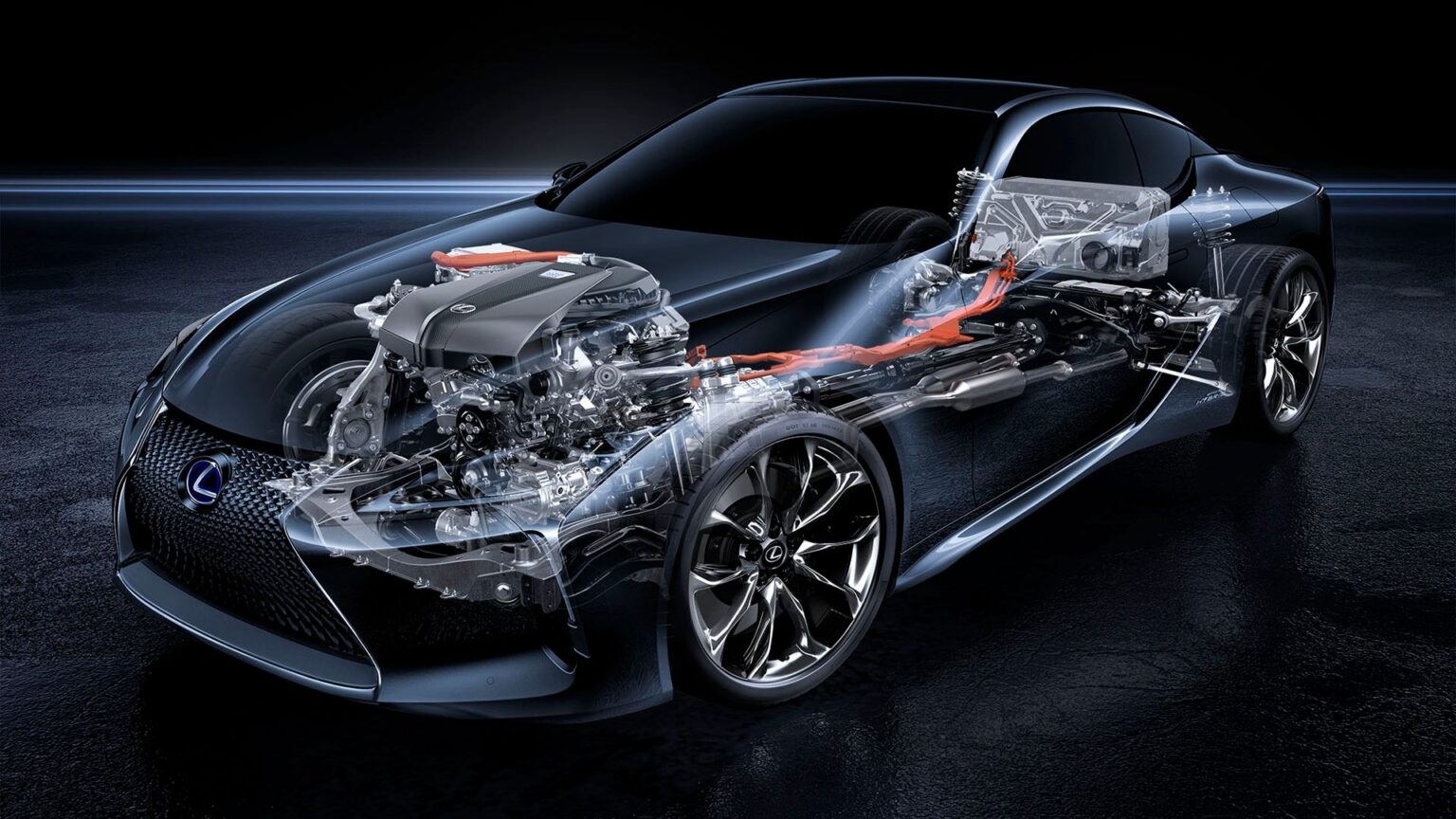has officially discontinued the for 2026, marking the end of one of the automotive industry’s most sophisticated hybrid sports cars. The luxury coupe managed to sell only seven units in the first half of 2025, compared to 783 V8-powered LC 500 models during the same period. The cancellation leaves the LC lineup with only the naturally aspirated 5.0-liter V8 engine, making it one of just three Lexus models without hybrid power for 2026.
Revolutionary Technology That Couldn’t Find Its Audience
The LC 500h featured Lexus’ groundbreaking Multi-Stage Hybrid System, a world-first technology that combined a 3.5-liter V6 engine with two electric motors and a unique transmission setup. This innovative powertrain paired a traditional CVT with a four-speed automatic transmission, creating what engineers called a “10-speed feel” that delivered more direct throttle response than conventional hybrid systems.
The system was designed specifically for performance applications, allowing the LC 500h to accelerate from 0-60 mph in 4.7 seconds while maintaining the smoothness and efficiency expected from a Lexus hybrid.
However, the complex technology came with significant limitations that may have contributed to its commercial failure. Unlike the V8-powered LC 500, which was available in both coupe and convertible configurations, the hybrid variant was offered only as a hardtop coupe. This restriction immediately limited its market appeal, as convertible sales represented a substantial portion of overall LC demand.
Additionally, the Multi-Stage Hybrid System’s sophisticated engineering came at a premium price point, with the LC 500h starting at $104,250 compared to the LC 500’s $101,100 base price.
A Broader Shift in Luxury Performance Preferences
The LC 500h’s cancellation reflects significant trends reshaping the luxury performance car market, where electrification is advancing rapidly but buyer preferences remain complex. While luxury car sales are projected to grow at 8-14% annually through 2031, and hybrid vehicle markets are expanding at 12.83% globally, the sports car segment continues to prioritize traditional performance characteristics.
According to industry analysis, luxury sports car buyers increasingly view hybrid powertrains as compromises rather than enhancements, particularly when choosing between similarly priced alternatives.
This preference pattern extends beyond Lexus, with other luxury manufacturers facing similar challenges in hybrid sports car adoption. The market data reveals that while luxury SUVs and sedans see strong hybrid acceptance rates, sports car buyers remain attached to the sensory experience of naturally aspirated engines.
The LC 500’s naturally aspirated V8 offers an increasingly rare combination of high-revving performance and distinctive exhaust note that hybrid systems struggle to replicate. As stricter emissions regulations push the industry toward electrification, the LC 500h’s failure suggests that luxury sports car manufacturers must find new ways to balance performance appeal with environmental compliance.
TopSpeed’s Take
The LC 500h’s failure represents a rare misstep for Lexus, a brand that has sold over one million hybrid vehicles since pioneering luxury hybrids with the RX 400h in 2005. Despite offering superior fuel economy of 29 mpg combined versus the V8’s 18 mpg, and producing a respectable 354 horsepower through its Multi-Stage Hybrid System, the hybrid variant couldn’t compete with the emotional appeal of the LC 500’s 471-horsepower V8.
Industry analysts suggest this outcome reflects broader market trends where luxury sports car buyers prioritize visceral driving experiences over efficiency, even as hybrid technology rapidly advances across other vehicle segments. The decision also comes as the entire LC lineup faces potential discontinuation after 2026, with the upcoming LFR sports car positioned as its likely successor.
Read the full article here


